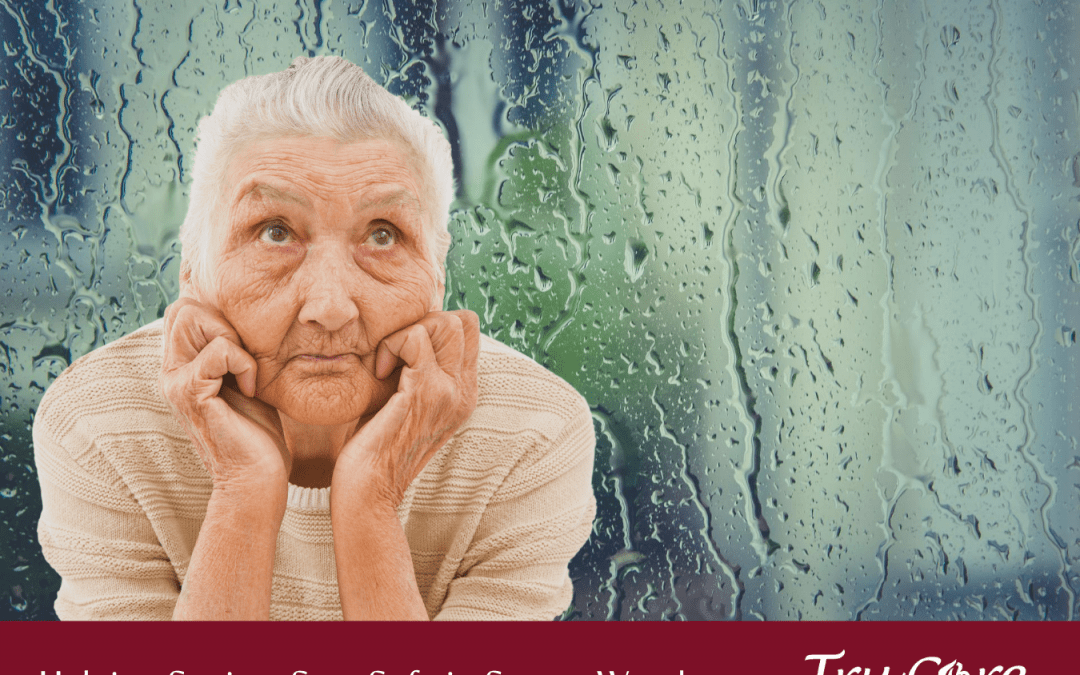Helping Seniors Stay Safe in Severe Weather

Severe weather is a common occurrence in the US. Every year, hurricanes, wildfires, blizzards, and tornadoes sweep across the country, destroying infrastructure and wreaking havoc on people’s lives.
In some cases, lives are lost to these natural disasters. Seniors are more at risk of succumbing to the perils of natural disasters as they are less mobile than younger citizens and therefore cannot get out in time to avoid disaster. Here at TruCare Home Care, we want to ensure that every senior is kept safe from the dangers of severe weather, which is why we’ve put together some simple tips to help you if you ever find yourself in this situation.
Hurricanes
Hurricanes bring extreme winds and storm surges which can lead to the destruction of buildings and severe flooding. Due to their unpredictability and swift movement, hurricanes can come on very quickly. Therefore, your first course of action should be to keep up to date with hurricane warnings as they can change by the hour.
If you know a hurricane is possibly heading your way, make sure to stock up on supplies as early as possible—grocery stores usually sell out very quickly, so get ahead of the crowd. You should always have a supply of non-perishable items if you live in an area prone to hurricanes.
Items to stock include bottled water, canned foods, energy bars, vitamin supplements, first aid kits, extra prescription medication, and flashlights with spare batteries. These items are useful should you be stuck at home for several days without power until you can be rescued by authorities.
Tornadoes
There’s nothing in the natural world quite as destructive as a tornado. These twisters rip up everything in their path and can seemingly start (quite literally) out of thin air! As they twist and weave across the land, they destroy anything thing they come into contact with, uprooting trees, flipping cars, and taking roofs off houses.
If you live in a tornado risk area, you should have a plan in place for when one arrives nearby. Having a preplanned emergency meeting place where you can meet with friends or family in the event of a tornado warning is a good idea. If you have a storm cellar or basement, make sure you keep it clear and stocked for if a tornado arrives. Stay away from windows and doors as debris can fly through them and injure you.
Tornados usually move on quite quickly, but make sure you leave your refuge point very carefully as there may be fallen debris or structural damage to your home that could easily collapse when you’re exiting your place of shelter.
Wildfires
You may think that wildfires are hard to miss—after all, the sky would be filled with smoke and blazing orange flames. However, people often underestimate the speed at which wildfires can travel—sometimes reaching around 200mph! If you live in a wildfire hotspot, you should always have an emergency bag packed and stored ready for a quick exit.
This emergency pack should include an N95 respirator to prevent smoke inhalation, copies of any important documents (home insurance, passport, etc.), bottled water, a spare set of car keys, and if possible, a fireproof overcoat.
If you have pets or livestock, you should also have a plan for leaving with them, but you may also need to leave without them should things get really bad. This is an unfortunate reality of living near wildfire hotspots. If you are trapped or your property is encircled by a wildfire, make sure you call 911 immediately.
Seniors need to be extra vigilant in areas that are prone to natural disasters as they are usually less mobile than younger people. However, with a few tips and a little bit of forethought, they should be able to deal with the worst that mother nature has to throw at them! If you’d like more information on how seniors can deal with severe weather conditions, don’t hesitate to contact us here at TruCare Home Care. We’d be more than happy to help you with any further advice you may need on this subject.




